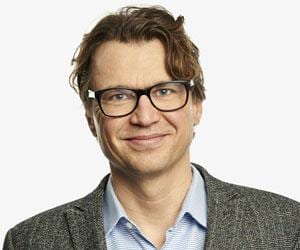Zeal on the fight for lottery’s digital future

Zeal Network is preparing for major changes in its core German market, with its acquisition of Lotto24 to prompt a pivot away from lottery betting in the country. Chief executive Helmut Becker explains how the shift will position the business for future growth – and why lottery betting is far from dead.
Zeal Network has just posted its third consecutive year of growth, with revenue for 2018 up 15% to €154.8m, and full-year profit rising to €26.7m. However 2019 will now see the business undergo a fundamental shift in Germany, acquiring its former subsidiary Lotto24 in an all-share deal, and discontinuing its lottery betting offering in the market.
While the combination with Lotto24 is estimated to create a lottery brokerage giant – Zeal estimates the enlarged entity will have a 46% online market share in Germany – the shift away from lottery betting will result in short-term pain.
In its 2018 report, Zeal admits that pivoting will result in €107m of lost revenue. That’s €107m that could be lost anyway – the German states are targeting lottery betting operators increasingly aggressively, and there does not appear to be any hope of these companies securing licences of any kind.
Zeal chief executive Helmut Becker (pictured) adds that this makes it necessary to “de-risk” the company’s business model in Germany.
“The brokerage business model is lower margin than lottery betting, but it’s also a much less risky business model,” he says. “With brokerage, when you acquire customers you can retain them for a very long time – they become extremely loyal – so it’s a more sustainable model going forward.”
Furthermore, he adds, there are a number of short-term benefits from the move. Savings will be made on hedging costs. Cost synergies of up to €57m – equivalent to 41% of the combined entity’s operating expenses – will also be achieved by migrating to a single technology platform and creating a single team. The enlarged brokerage business will also be able to advertise through a much wider range of channels in the country.
And then there’s Lotto24’s growth. The €107m fall in revenue is based on the business’ most recent full-year results, for 2017. Since then, Lotto24 has suggested billings have grown by as much as 50%.
“We are controlling our destiny with this strategy – we’re changing before we have to change, creating our future in the German market while we are strong and still have options,” Becker says.
Becker says that Zeal treats each distinct element of its business much like a venture capitalst does, investing where it makes sense, testing out new products (through its Zeal Ventures arm) to see what will gain traction. Where things no longer make sense, as with lottery betting in Germany, it will make changes – the focus is on long-term, sustainable growth.
However the German pivot does not sound the death knell for lottery betting, he adds. The product will still be available in markets such as the UK and Ireland, for example, where regulators have been much more forgiving.
Zeal is effectively “business model agnostic”, Becker explains. As there is no standardised regulation for lotteries across the world, it will pursue different opportunities in different sectors. This has seen it invest in charitable lottery, such as the UNICEF lottery in Norway via its Lottovate subsidiary, as well as backing Omaze, a start-up offering experiential prizes, and The Dream Makers via its Zeal Ventures subsidiary.
All this ultimately derives from the fact that lottery remains very much a land-based sector, with a significant lack of product innovation. This means it is less relevant to younger demographics. Becker recognises that if the vertical is to survive in an increasingly digitised market, it needs to expand its appeal.
“Ultimately we are an ecommerce company focused on the lottery market, so we are consumer-led,” he says. “We need to understand the needs of the consumer better than any company.
“We need to get the product right, the marketing right, and then there’s the extra speciality of navigating regulation, which we need to be able to do as well,” he continues. “There is a marketing element for reaching new target groups, there’s the very simple element of being good at digital marketing – the lottery industry is still under-penetrated online – so just being good at digital marketing we will address a slightly larger target market.”
Ultimately 2019 is a pivotal year for the business. Should Zeal manage the integration and pivot well, the business would be underpinned by solid, sustainable revenue from the German market, allowing it to continue expanding and experimenting with other lottery variants. Following a third set of strong revenue growth, Zeal is well-positioned to do so, but the pressure is on to deliver.
